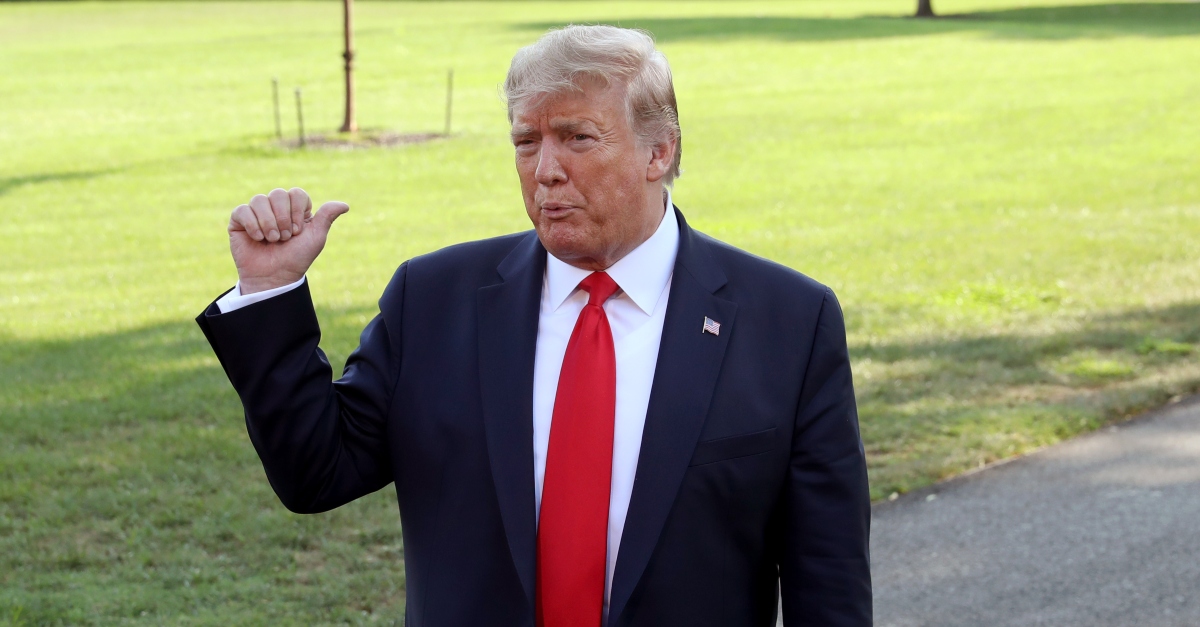
President Donald Trump’s intervention in the case of Navy SEAL Eddie Gallagher, a high-profile stand-off, the subsequent firing of Navy Secretary Richard Spencer, and the controversial pardons of two soldiers accused of war crimes have all led to a “morale problem,” one long-serving military officer told CNN on Thursday.
Per the report, senior Pentagon officials are “disturbed” by what’s transpired:
A long-serving military officer put it bluntly, telling CNN “there is a morale problem,” and senior Pentagon officials have privately said they are disturbed by the President’s behavior.
Dismay in the Pentagon has been building over Trump’s sporadic, impulsive and contradictory decision-making on a range of issues, including his sudden pullback of troops in Syria. But now there are new and significant worries, as multiple military officials and retired officers say Trump’s intervention into high-profile war crimes cases cannot be ignored.
Jarring in its own right, the aforementioned former Navy Secretary Spencer took to both television and the op-ed pages to say that the Gallagher Trident Pin intervention was proof that the Commander in Chief doesn’t understand military values:
This was a shocking and unprecedented intervention in a low-level review. It was also a reminder that the president has very little understanding of what it means to be in the military, to fight ethically or to be governed by a uniform set of rules and practices.
The president, it was reported this week, wants the military members he pardoned to join him on the 2020 campaign trail.
Such politicization of military justice, CNN reported, has caused a rift among the ranks. Some say it’s just the president having their backs, while others say the president is undermining the necessary independence of the military from partisanship:
Even more worrying, “the military is divided,” one official said. “There are two camps. Half are ardent Trump supporters that believe the President is watching out for the troops.” But the other half, many of whom are high ranking, believe the military must remain independent of partisan political influence and they don’t see the President adhering to that.
Steps may even be taken to remind troops of “their moral and legal responsibilities on the battlefield.”
Critics have long said the president’s support of Gallagher and pardon of war crimes condones illegal acts by U.S. armed forces, undermines discipline, and puts American service members in danger. Still others have warned of the “Gallagher Effect,” in which presidential interventions make it harder for the armed forces to demand accountability from wrongdoers.
Although Gallagher was acquitted of murder, he was still convicted for posing with the corpse of a dead ISIS prisoner.
Just last month, a Navy officer directly involved with the Gallagher case spoke anonymously with the New York Times, saying the president’s tweets about the prosecutors in the Gallagher case have had a direct effect on decision-making of individuals in a position to deliberate about punishments. “People want to hold these guys accountable,” the officer said. “But they are afraid that if you do anything, minutes later there will be a tweet from the White House, and the officer in charge will get axed.”
Similar concerns were raised in May.
[Image via Mark Wilson/Getty Images]